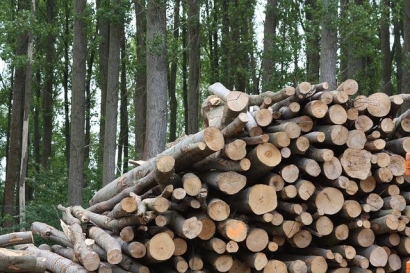
In their study, the findings of which were published on 22 October 2022 in the Journal of Material Cycles and Waste Management, the researchers used cedar wood board and chips as woody biomass and the ginger herb species Alpinia zerumbet as herbaceous biomass to test the novel mechanical rolling compression method. They found that cedar board and Alpinia zerumbet were compressed more effectively than cedar chips.
Explaining this observation, Dr. Ohara says, “Using our technique, all plants could be compressed; however, cedar board and Alpinia zerumbet were more effectively compressed than cedar chips, which were compressed in a random direction. This indicates that compression along plant vessels, such as straw, is essential for efficacy.”
Here, it must be mentioned that plant vessels are tissues in vascular plants associated with the conduction of nutrients and water.
After compression, the researchers crushed and pelletized the residues to determine their combustion performance, an indicator of their potential as biomass for power generation. The liquid obtained as a byproduct of compression was filtered, its lignin content and structure determined, and its antiviral properties evaluated using cell viability assays.
The cedar board pellets showed a higher heat value on combustion, which matched the ISO standards, attesting to their higher energy performance. The ginger herb species yielded more water-soluble lignin, but its heat value on combustion was slightly lower, at 95% of the ISO standards.
Dr. Yuta Nishina from the Research Core for Interdisciplinary Sciences, Okayama University, a co-author of the study, observes, “The non-chemically extracted water soluble lignin obtained by this method can find applications in the fields of medicine, cosmetics, and livestock husbandry.”
Besides, the high-carbon content water-soluble lignin may find use in carbon nanomaterial production and contribute to reducing carbon-driven pollution.
Summarizing the benefits of their novel technique, Dr. Ohara observes, “Our method does not require time, a stockyard, or additional thermal drying, allowing for on-site operation. This compressor can squeeze both wood and herbs allowing us to promote biomass electric power generation using locally grown plants. These characteristics are beneficial for advancing local sustainability.”

